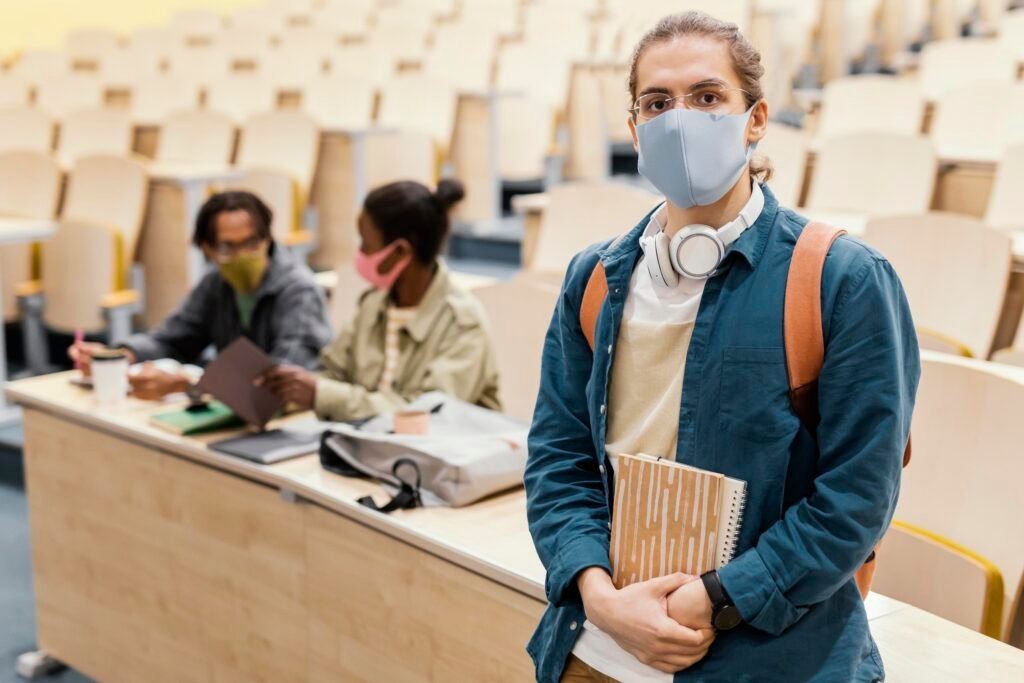His book
d. Sami Miari, Tel Aviv University and CEO of the Arab Economic Forum
d. Al Nabulsi Rajda, Rubin Academic Center
d. Maha Karakafi Sabah, Ben Gurion University
Aris Besharah, Tel Aviv University
Najm Abu Bina, Joint Israel
Advisory Committee
d. Youssef Mushiravi, Tel Aviv University
Professor Khaled Arar, University of Texas
d. Sharaf Hassan, National Committee for Arab Local Bodies
A.D. Khalid Abu Asabah, Al-Qasimi College
Bashir Sabah, University of Haifa
introduction
And at the end of 2019, the Corona virus spread all over the world. Many countries, including Israel, declared a state of emergency and announced restrictions and guidelines aimed at applying the principle of social distancing aimed at slowing the spread of the disease (Sumich, Miari and Masterman, 2020). These restrictions led to radical social and economic changes in the world and in Israel.
One of the main areas affected by the Corona epidemic is the higher education system: the academy closed its doors, and the students and lecturers had to adapt to the new reality and switch to the form of distance learning, i.e. the virtual study. The shift from direct study to virtual study in the Israeli higher education system affected students in general, and Arab students in particular, and revealed the policy of economic, social and educational neglect of the Arab community over the years.
The purpose of the current work is to highlight the various obstacles and challenges facing Arab students in the Israeli academy in the wake of the Corona crisis, and to suggest possible courses of action to deal with these challenges. The difficulties that were discovered in the field of higher education among the students of the Arab community during the Corona crisis are not new, but rather worsened against the background of this crisis, and the gaps that existed from the beginning were revealed and deepened. Therefore, the current report suggests that addressing the problems must be two-fold: a comprehensive treatment of the factors that led to educational inequality between Jews and Arabs in the first place, along with building a set of specific and adapted services to fit the needs of society. Dealing with the difficulties immediately in the light of the Corona crisis in order to present the field knowledge, the applied work trends and the effective work methods, we reviewed the professional literature in this field, and examined a wide range of social surveys, and the reports about it. On behalf of VAT and MLA, and the relevant academic studies published by higher education institutions in Israel.
The document shows an increase in the percentage of participation of the Arab population in the Israeli academy as part of a comprehensive social change process, including increasing awareness among Arab families about the importance of higher education as a booster of social and economic leadership. In addition to the development of the comprehensive program and the allocation of large funds, the Planning and Budgeting Committee for the Higher Education System invested in this topic. And the report indicates the characteristics of the Arab students on the eve of the Corona crisis; the ongoing effects of the crisis on the Arab students; and the academic, social and personal barriers they face that existed before and after the changes that occurred in the higher education system and the transition to online learning; the opportunities that can and should be exploited for the benefit of the improvement and progress of Arab students after the crisis; Finally, recommendations are made regarding the possible courses of action and the accuracy of the services that exist today.

